
In the journey towards a more sustainable wardrobe, every choice counts. As an eco-conscious shopper, it's crucial to arm yourself with the right questions that lead to making informed decisions that align with your values.
Below, we've compiled six questions designed to guide you through your shopping journey. Consider these a toolkit for weaving sustainability and ethics into the very fabric of your wardrobe. Let's dive in!
1. "Who Made My Clothes?"
When we talk about sustainability in fashion, it's not just about picking eco-friendly materials. Certainly choosing materials that are kinder to the planet is super important. But there's another big piece of the puzzle: thinking about the people who make our clothes.
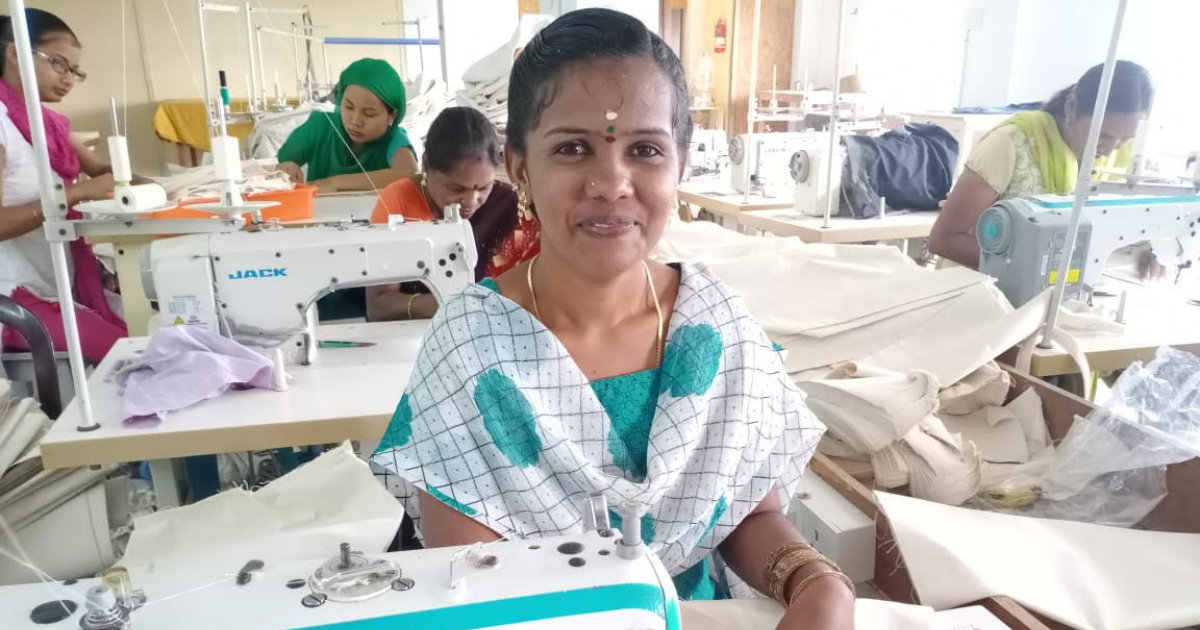
Pictured: A MADE FREE Maker in Kolkata crafting the Market Tote.
True sustainability ensures ethical labor practices. This means paying fair wages and keeping safe working conditions, positively impacting local communities, preserving traditional crafts, and empowering workers through education and skill development.
Look for brands that are affiliated with the World Fair Trade Organization and those that prioritize transparency. This little bit of homework can help you support companies that are not just talking the talk but walking the walk in terms of both environmental and social responsibility.
2. "What Is It Made Of?"
Materials matter—a lot. We're talking about the difference between conventional fabrics that drain our planet's resources and sustainable ones that aim to tread lightly on the earth.
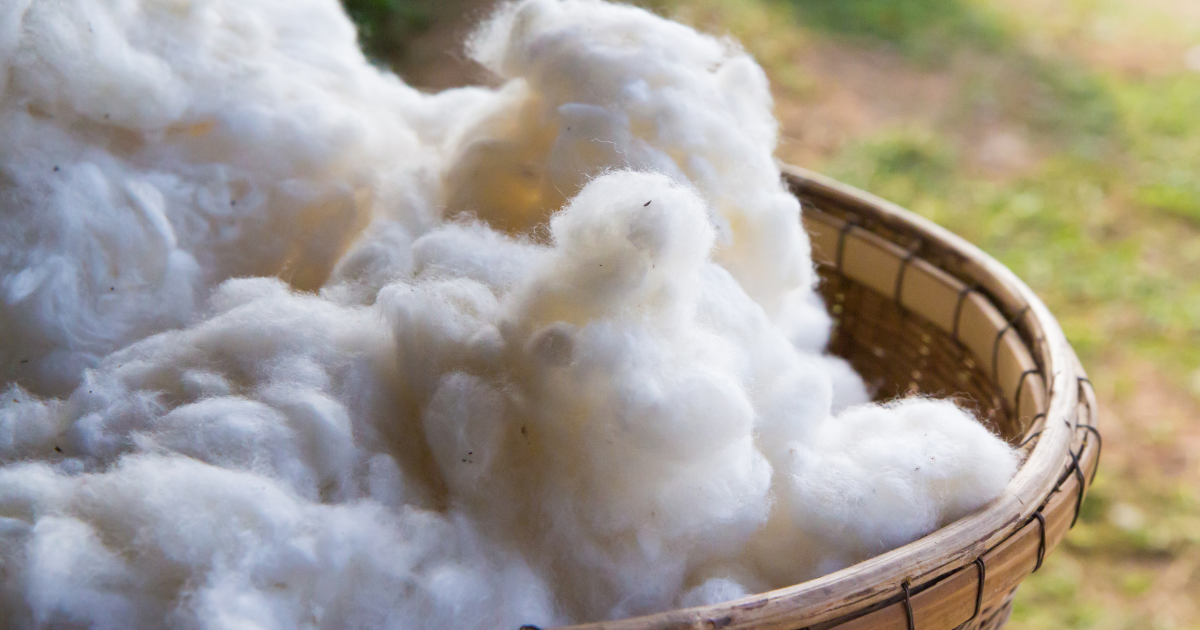
Pictured: Organic Cotton
Here are some eco friendly materials to keep an eye out for:
- Organic Cotton: This is cotton that’s grown without the harsh pesticides, and wasting less water, making it a friendlier option for the earth.
- Recycled Polyester: It transforms plastic bottles into fabric, giving what would be waste a new, stylish life.
- Tencel (Lyocell): A superstar fabric known for its eco-friendly production process and biodegradability.
- Hemp: This plant requires little water and can turn into a durable, sustainable fabric.
- Vegetable-tanned Leather: A traditional method that uses plant materials instead of harsh chemicals. Not only is this process kinder to the planet, but it's also much safer for the workers involved. Learn more about veg tanned leather.
You can also look for trusted certifications like Global Organic Textile Standard (GOTS), Fair Trade certified, and OEKO-TEX can indicate sustainable and ethical production practices.
Some brands are transparent about their materials and supply chain. Look for those that share detailed information about where and how their products are made.
3. "Do I Really Need This?"
In the age of fast fashion, it's easy to be swept up by trends and impulse buys. However, one of the most powerful questions to ask yourself is "Do I really need this?"
When you pause and ask this question, it forces you to consider the product’s lifecycle and whether it will be a cherished part of your wardrobe or just a fleeting fancy. Buying with intention promotes a more sustainable approach to fashion, focusing on quality and longevity over quantity.
4. "How Often Will I Wear This?"
Closely related to the need is the question of utility. A sustainable wardrobe is not just about the materials or the manufacturing process; it's also about functionality and frequency of use.
A garment worn only once carries a much higher environmental cost per wear than one worn a hundred times. Consider the versatility, timelessness, and durability of the piece and whether it fits well with the rest of your wardrobe.
Take handbags as an example—opting for vegetable-tanned leather is a smart move. Not only is it high-quality and more eco-friendly, but it also tends to last way longer than its chrome-tanned counterparts, making it a stellar pick for something you'll want to use every day.
Check out our Leather Collection for some timeless veg-tanned leather options.
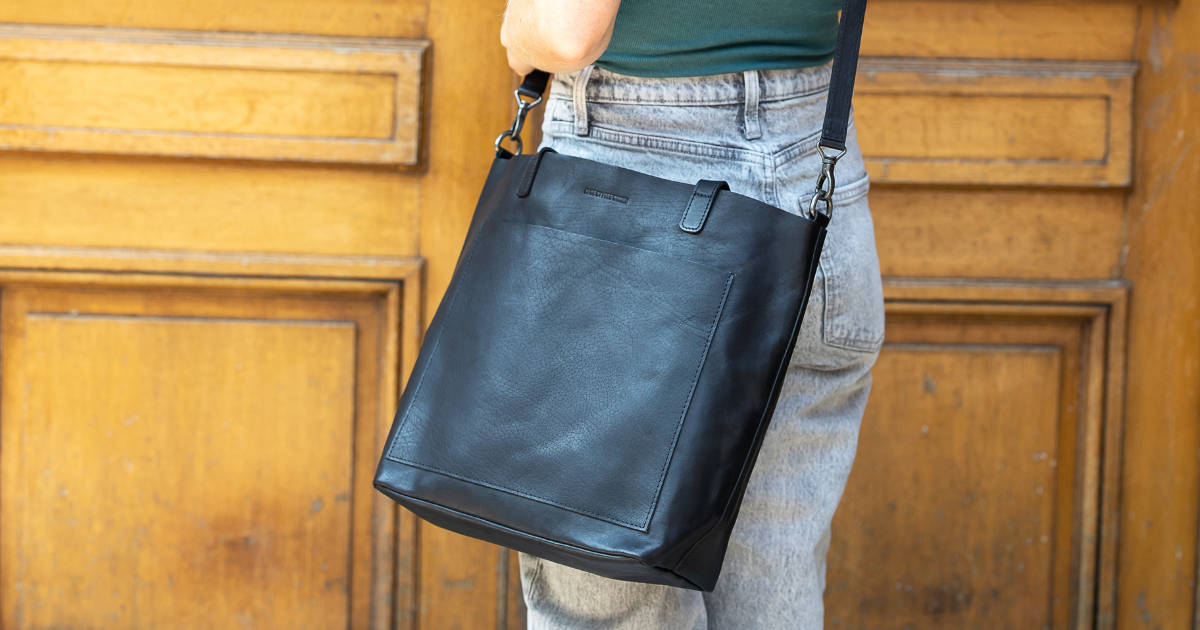
Pictured: The MADE FREE Veg-Tanned Leather Day Tote
5. "Can It Be Recycled or Upcycled?"
Think with the end in mind. This is a central part of recycled fashion and adopting a circular fashion mindset. When eyeing that next purchase, ask yourself, "Can it be recycled or upcycled?"
The fate of your clothes after you're done with them can make a big difference. Opting for pieces made from recyclable materials – like recycled polyester – or choosing brands that run take-back programs can dramatically lessen the environmental load your wardrobe contributes.
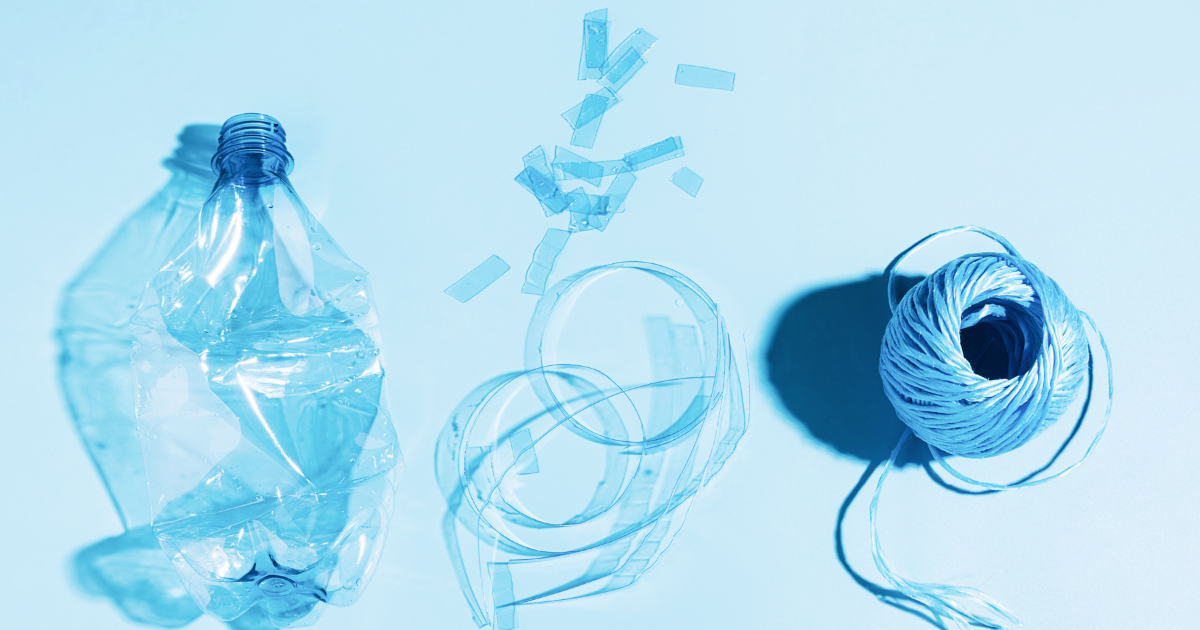
Pictured: Recycled Polyester
Alternatively, consider whether the garment can be upcycled or repurposed, giving it a new life beyond its initial use.
6. "What's the Impact of This Garment?"
When shopping for garments – clothes, shoes, handbags, backpacks, or whatever it may be – consider "What's the impact of this garment?" This is crucial for ethical, environmental, and social responsibility. Look for transparency and impact reporting on the brand’s website.
Here, every item you buy helps someone towards a day of freedom. It's our way of fighting against the cycle of exploitation and modern slavery, especially targeting the help towards women and girls who are unfairly hit the hardest by these issues. So far, we're proud to say that MADE FREE has provided over 100,771 days of freedom.
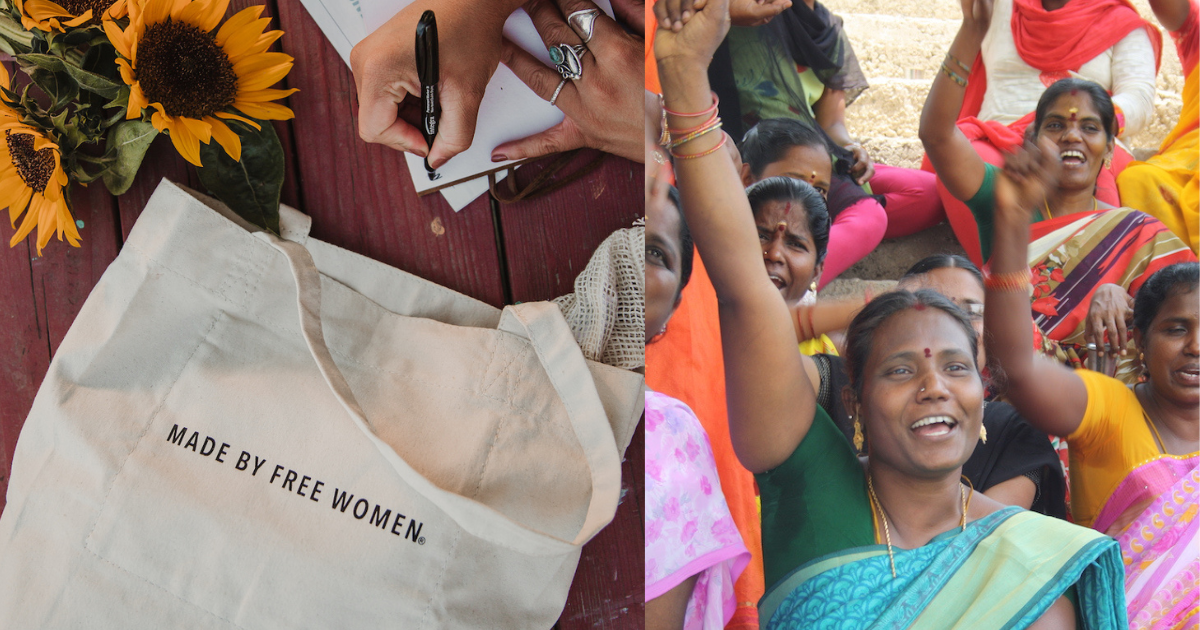
Pictured: MADE FREE Makers alongside the MADE BY FREE WOMEN Market Tote Bag
On the environmental side, our commitment is just as strong. Our range includes recycled polyester backpacks and fanny packs, which give a new lease on life to 5 to 50 plastic bottles per item. It’s our way of showing that fashion can be both stylish and sustainable.
Final Thoughts
Asking these six questions before purchasing new clothes empowers you to make more informed, sustainable, and ethical fashion choices. By choosing to ask these questions, you’re not just shopping; you’re proving why sustainable fashion important and participating in a movement towards a more equitable world.





0 comments